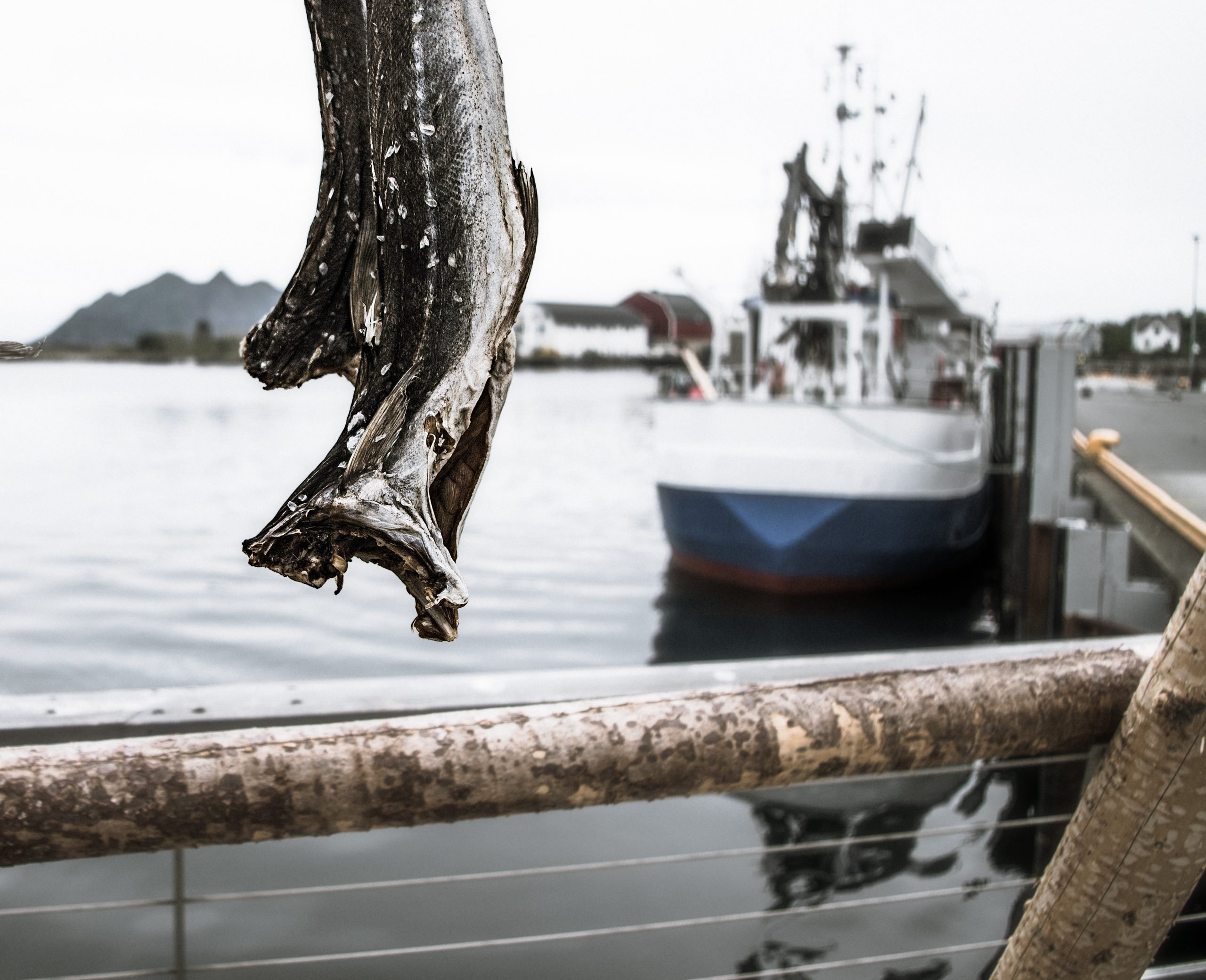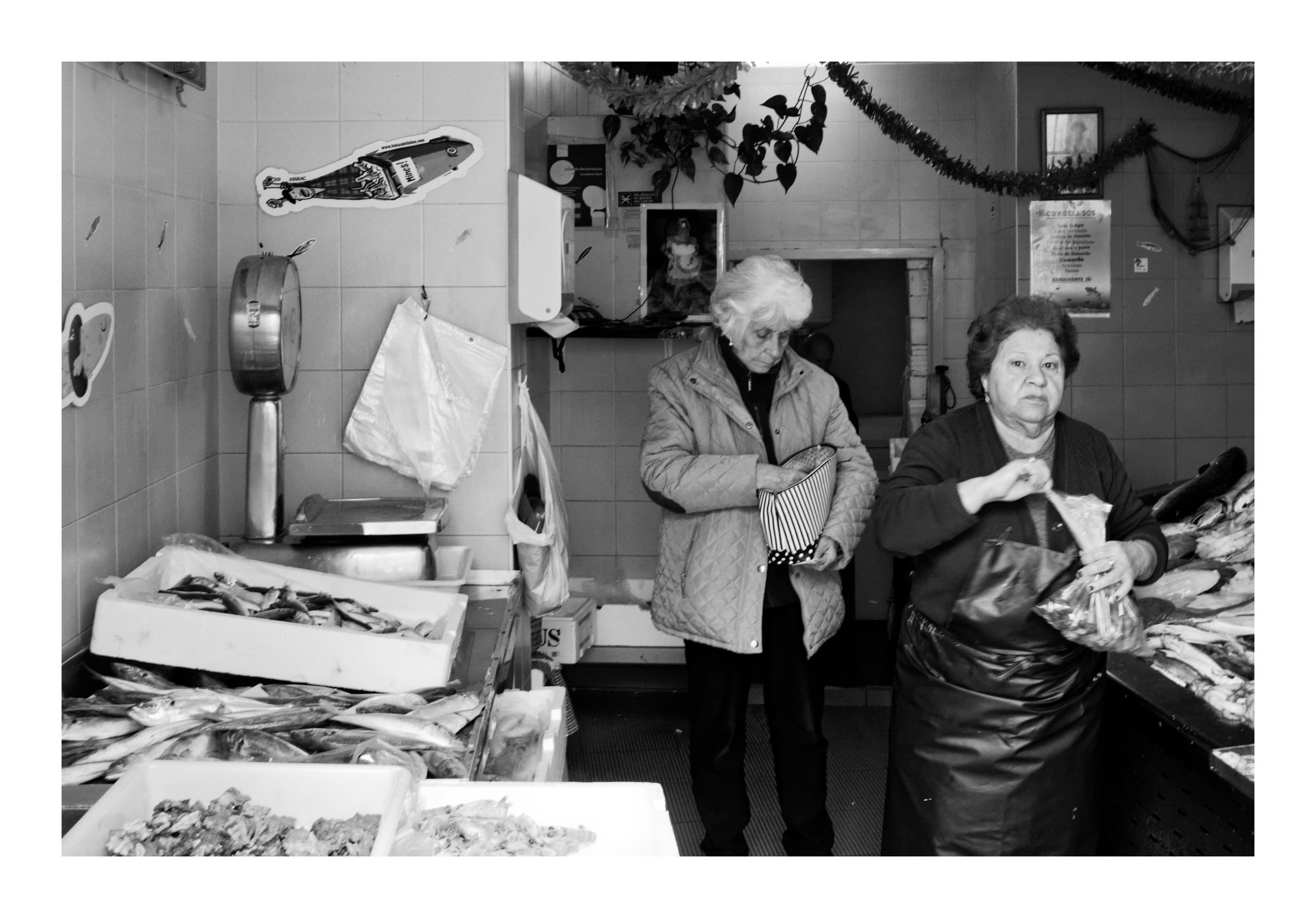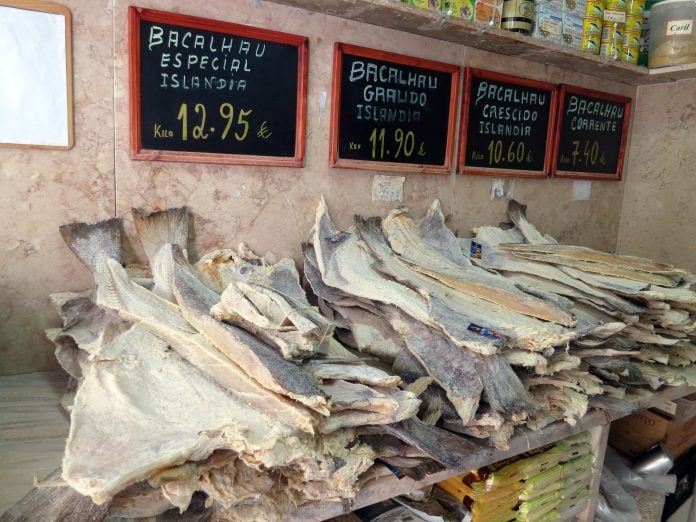Oven-baked, with cream, à Brás, à Gomes de Sá, the options are endless. The Portuguese say that there are 1001 ways to cook cod, also known as bacalhau in Portugal. Cod is a natural treasure, one that is connected to Portuguese history, from the Portuguese discoveries to the end of a fascist dictatorship.
Interestingly enough, salted cod is not even caught on the Portuguese coast, but rather from Norway. The Portuguese consume over 100,000 tonnes of salted dried Norweigian cod, almost 10 kilograms per person every year. You could say the Portuguese are pretty hungry for cod, consuming 20% of the world’s cod.
And we have been doing so for centuries. The Portuguese began consuming cod in the fourteenth century when Portugal and England would trade salt for codfish. In the mid-1500s, the Portuguese stumbled upon another place to get their cod from. In the midst of the discoveries and while trying to find the coast of India, they found themselves in Canada and Greenland.
The conditions for fishing cod there were beyond perfect, from Canada’s shallow banks and an abundance of plankton to attract plenty of fish. Portugal decided to start fishing their cod in Canada, calling the codfish the Bacalhau da Terra Nova. But as they say, all good things come to an end. By the sixteenth century, the French and English took over the fishing industry in the area.
Portugal became heavily dependent on the English as the main exporter of cod to the country. However, cod was a bourgeois delicacy not available for all. Until the nineteenth century, cod was a dish available only to the aristocracy and the rich. The masses only began having access to the unique taste of cod by the nineteenth century, where the amount of salted cod in Portugal increased due to how easy it was to conserve, in contrast to fresh fish.
Codfish became even more popular during the Estado Novo, under the dictatorship of António de Oliveira Salazar. Prior, Portuguese fishermen did not fish cod, instead of having it imported from England and France.
Under the regime, starting in 1934, to make sure cod remained a national symbol, Portuguese fishermen were sent off to Canada and Greenland to fish cod. Fishermen would bring back over 900 tons of salted fish in one boat, after facing the hard and dangerous conditions at sea. Men would fish for 10 hours a day on small boats, facing frightening waves and winds. Many never made it back home to their families.
The year that the fascist dictator of Salazar fell, so did the Portuguese fisherman voyages to Canada and the violent labor regime they were subjected to. At that time, laws about overfishing also increased throughout Europe, culminating in a full ban of cod fishing in Canada in the 90s.
The Portuguese were forced to change their ways, but the tradition of cod never went away. Today, most of the cod in Portugal is imported from Norway, known as o Bacalhau da Noruega.
From a young age, millennial Portuguese kids watched the grand adverts on television, boasting bearded Norwegian men facing the treacherous waves to fish our beloved bacalhau. 70% of all cod consumed in Portugal is imported from Norway, while a tiny amount of Portuguese fishermen still go out to sea in Norway to fish.
Most cod imported to the country is salted and dried to maintain its shelf life for a long period since it’s coming from over 3,000 kilometers away. In fact, 95% of the cod consumed in Portugal is dried and salted. Portuguese people have only started eating fresh cod in the last 10 to 20 years when it started appearing in more contemporary restaurants.

So, why is cod so popular in Portugal? Our love for cod is habitual. Don’t take this the wrong way, codfish dishes are delicious. The taste is like no other, the saltiness and strong flavor. But the reality is that cod dishes have been passed down in Portuguese families from generation to generation and the Portuguese have made it a habit to consume cod.
Every Christmas eve codfish is the main player, even for non-religious families. In a way cod is like any other Catholic tradition, we abide by some of the Church’s traditions because that’s the way it’s always been. Christian Portuguese people were not allowed to eat meat on fasting days of the Catholic calendar, leading to the tradition of eating cod on Christmas eve. The meal is simple. The cod is baked in the oven and served with boiled cabbage, eggs, and potatoes.
On Christmas day, many Portuguese families eat Roupa Velha which translates to Old Rags. This dish was created to not waste any food, a peasant-like lunch that consist of mixing the leftover codfish, potatoes, cabbage, and eggs. It is unlikely that you will find this dish in Portugal unless it’s Christmas day.

Although it takes center stage on Christmas, bacalhau is part of our everyday life, like a baguette to the French and fries to the Belgian. Walking through a food market in Portugal, you will sense the smell of cod from a mile away. While the scent might bother tourists, to the Portuguese, it brings a sense of comfort.
Kilos of salted cod will be stacked up on tables, with customers touching the product to find the perfect one for their meal. Whether Bacalhau à Brás, a shredded cod dish with eggs, or Bacalhau à Lagareiro, baked cod with potatoes, the cod you picked out at the local market matters.
Not just for its taste, but due to its cultural significance and heritage, as well as the belief that we must support Portuguese fishmongers, usually older men and women. However, the price of cod has been increasing exponentially, where today most cannot afford a whole cod. It seems that unfortunately, cod could be on the way to becoming, once again, a product available only to the most wealthy.



We love our bacalhau any style will do But our family would boil it and set it aside add potatoes and collard greens to salted fishy water and cook till perfect; take them out add a can garbanzo beans to heat it
I’m large bowel mix lots red onion fine chopped with fine garlic lots fine chopped parsley red wine vinegar and português olive oil mix well throw in cod n beans mix serve with collard greens n potatoes and green salad. Never gets old with those amazing flavors ❤️❤️❤️
That in fact is the traditional Portuguese way to prepare the Christmas eve meal!
The Basques were shown the secret of air drying cod (stockfish) by the Vikings, who told them about vast quantities of codfish off the Grand Banks in America. The Basques had salt, which the Vikings didn’t have. Basque fishermen were sailing to the Americas (in tiny fishing boats) to catch and salt cod for four of five centuries before Columbus discovered America (1492). There’s evidence of Basque fishing huts in the Americas from this time. See: Cod: A Biography of the Fish that Changed the World – Mark Kurlansky (1989).